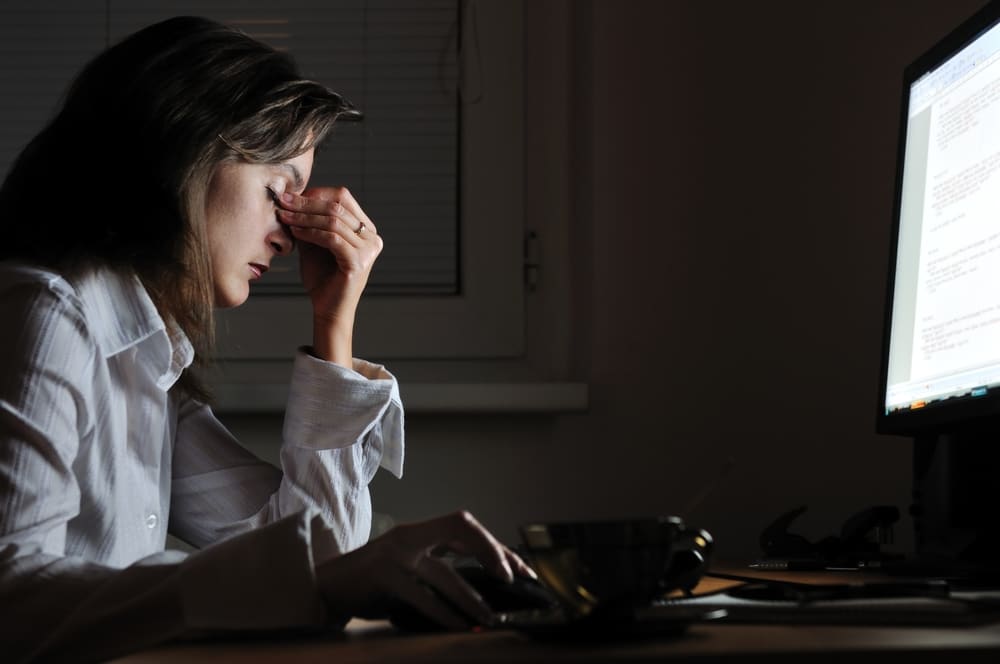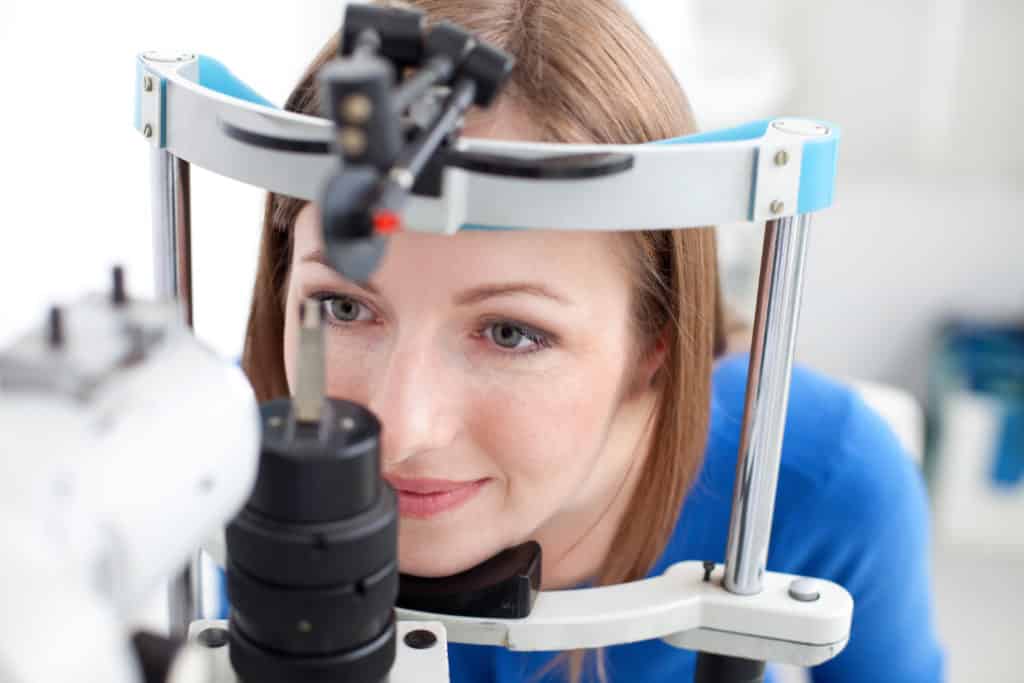Tired eyes can cause your eyes to feel dry and itchy. There are many different things that can cause eye fatigue, from spending too much time using screens to driving for long distances. Tired eyes is a very common condition that can impact your entire day until you find relief.
If you suffer from eye fatigue (also known as asthenopia or eyestrain), there are several things that you can do in order to improve your condition. If this is a common issue for you, there are also things that you can do in order to decrease the likelihood of this problem. If fatigue persists in spite of self-care measures, you will want to consult with your eye doctor in order to determine the cause and appropriate treatment methods.
Here’s what you need to know about what can cause eye fatigue and the things that you can do to help it.
Common Causes Of Eyestrain

In order to better understand what you can do to help eye fatigue, it’s helpful to know what the common causes of this issue are. Eyestrain can be caused by quite a few different circumstances. These range from easily adjustable to more serious conditions that need medical attention.
Some of the most common causes of eye fatigue include:
- Excessive use of screens. This isn’t something that can be prevented for many people, given how many jobs involve long hours using screens. However, blue light exposure can lead to tired eyes, headaches, and more.
- Intense eye focus. This applies to anything that you need to focus intently on, from reading to crafting to driving and more. If you don’t give your eyes a break, you may struggle with asthenopia.
- Poor lighting. If you’re having to squint and lean in close in order to see what you’re doing, this can strain your eyes. Light that is too bright can also cause you to squint and struggle to see.
- Lack of sleep. As you may expect with fatigue in the name, if you don’t get enough sleep, this can cause eyestrain, as your eyes aren’t getting the rest that they need.
- Exposure to dry moving air. This is more common during the colder months, when people have their central heating running more often.
- Underlying eye conditions. There are multiple underlying issues that can lead to asthenopia, such as uncorrected vision and dry eye.
What You Can Do To Help Eye Fatigue
If you suffer from asthenopia, there are multiple things that you can do in order to improve your condition and to prevent it from occurring again in the future.
Some of the ways you can both help and prevent your eyes from getting tired are as follows.
#1. Be Smarter With Your Screen Time
In an ideal world, you wouldn’t spend an excessive amount of time on your screens. However, for many people, they don’t have a choice in the matter, because they need to for school or for work.

Fortunately, there are still things that you can do. You can adjust the screen settings so that it is easier to see. You can take breaks every 20 minutes by looking somewhere 20 feet away for 20 seconds. You can ensure that you sit an arm’s length away from your screen and that your gaze is slightly downward.
If possible, try to reduce your screen time when you can. For instance, if you like to read, you may consider reading a physical book rather than an e-book.
#2. Take Breaks From Focusing
Whether you’re working, crafting, or driving, you should take regular breaks from anything that requires intense focus. Utilizing the above-mentioned 20-20-20 rule can help (but not if you’re driving!) If you’re driving, ensure that you pull over to take regular breaks so that your eyes have a chance to rest.
#3. Adjust Your Lighting
As mentioned above in regards to your screens, you’ll also want to adjust the lighting around you in order to ensure that you don’t have to strain your eyes in order to see properly. You don’t want it to be too bright or too dim, but, as Goldilocks says, just right. You can fiddle with your lighting to find that sweet spot that works best for you.
#4. Get Enough Sleep
Easier said than done if you already have eyestrain from lack of rest, isn’t it? Still, it’s crucial that you get your full 8 hours in, not just for the sake of your eyes, but for the sake of your overall mental, emotional, and physical health.
#5. Avoid Air Blowing Right At You
You can do this inside by avoiding sitting by vents and fans, if possible. Glasses can provide a bit of protection here. If you venture outside, sunglasses can also protect your eyes from wind that would otherwise dry them out or cause them to water.
#6. See An Eye Doctor

If self-care measures don’t help your eyestrain, you should schedule an appointment with your eye doctor in order to determine what’s going on.
Wolcott Optical can help you prevent eyestrain with our quality eyewear services. From blue-light-blocking glasses to sunglasses and more, we have an extensive selection of eyewear to suit your needs. Contact us to learn more about how we can help you.
